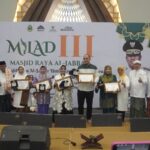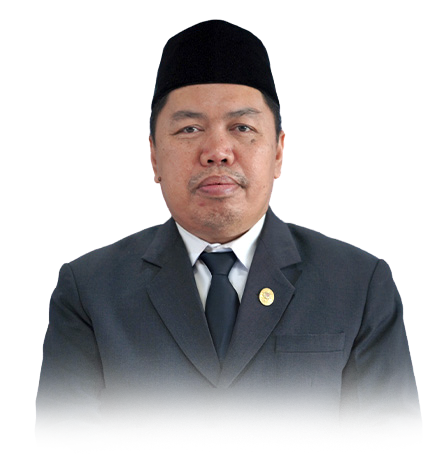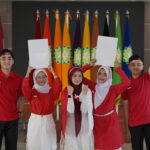Civil Society adalah wilayah kehidupan sosial terorganisir yang terbuka, sukarela, menghasilkan diri sendiri, mandiri (sekurang-kurangnya setengah mandiri), otonom dari negara, dan terikat oleh tatanan hukum atau seperangkat aturan bersama. Aktivisme civil society di negara-negara berkembang termasuk di Indonesia secara mendasar telah menempatkan bekerjanya sistem serta struktur politik dan pemerintahan yang demokratis sebagai tujuan utama yang harus diwujudkan. Tetapi masyarakat yang memiliki komponen tertentu sebagai syarat adanya civil society itu. Komponen tersebut meliputi empat hal, Otonomi, Akses masyarakat terhadap lembaga negara, Arena publik yang otonom, Arena Publik yang terbuka.
Gerakan sosial merupakan salah satu bentuk aktivisme civil society yang khas, yang memiliki definisi sebagai bentuk aksi kolektif dengan orientasi konfliktual yang jelas terhadap lawan sosial dan politk tertentu, dilakukan dalam konteks jejaring lintas kelembagaan yang erat oleh aktor-aktor yang diikat rasa solidaritas dan identitas kolektif yang kuat melebihi bentuk-bentuk ikatan dalam koalisi dan kampanye bersama. Berbagai macam gerakan sosial tidak akan mungkin berjalan tanpa wadah formal Ornop atau NGO.
Konsep civil society sangat penting jika kita ingin memahami resiko dari “perubahan menuju demokrasi” dan juga memahami aktor yang relevan. Juga penting untuk segala analisis yang berupaya menangkap datangnya perubahan dan juga bentuk kontemporer dan resiko konflik. Jadi kita yakin kemunculan kembali wacana civil society adalah inti dari perubahan dalam budaya politik kontemporer. Namun, meskipun terjadi pertumbuhan “wacana” dan konsep itu sendiri, tidak ada yang mengembangkan teori civil society secara sistematik.
Diantara konsep civil society yang tidak sistematik tersebut terdapat space yang harus diisi untuk terciptanya civil society, yang paling banyak diharapkan dapat memainkan peranan mengisi ruang publik di dalam civil sosiety adalah kalangan LSM atau NGO. LSM dan NGO sebagai organisasi yang dapat menjadi sumber daya politik potensial dalam rangka menyiapkan civil society. Di negara manapun, pemerintah akan mengakui betapa besarnya peranan NGO dalam kehidupan sehari-hari. Tipe ideal hubungan aktivisme civil society (NGO-Pemerintah) semestinya bersifat fasilitatif dan sinergis guna menopang keberhasilan pengembangan tata pemerintahan demoratis. Kemitraan yang sinergis sangat mungkin terwujud jika NGO dan pemerintah berusaha lebih memperhatikan kontribusi yang saling melengkapi, ketimbang kontribusi yang saling bersaing. Pendekatan sinergi negara masyarakat (state-society synergy) dapat dikembangkan untuk memperkuat pembangunan yang berkelanjutan.
Kata Kunci: Civil Society, Gerakan Sosial, NGO
Civil Society is the area of organized social life that is open, voluntary, self-generating, self-contained (at least semi-independently), is autonomous from the state, and tied by a legal order or a set of shared rules. Activism of civil society in developing countries including Indonesia has put fundamental workings of the system and also political structure and democratic governance as key objectives to be realized. But people own some particular component as condition as a requirement of existence of civil society. The component cover four matter, Autonomous, Public access to state institutions, Autonomous public arena, Open public arena.
Social movement represent one of the typical civil society activism form, which have definition as collective action form with clear conflict orientation to certain social and political opponent, conducted in the context of cross-institutional network of actors is closely tied to a sense of solidaryty and collective identity robust than other forms of bonding together in coalitions and campaigns. Various social movements will not possible walk without the formal container such as Ornop or NGO.
The concept of civil society is essential if we wish to comprehend the risk of a “change to democracy” as well as comprehending relevant actor. Also important to any analysis that seeks to capture coming change, as well as contemporary form and risk of conflict. So we believe that resurgence of civil society civil discourse is the core of change in contemporary political culture. However, despite the growth of “discourse” and the concept itself, nothing that could systematically develop civil society as theory.
Among the civil society concept which is cant be the systematic, there are a space which must fill for the creation of civil society, which at most expected can play role to fill public room in civil society is the circle of NGO. NGO as organization able to become potential political resource for prepare civil society. In any state, government will confess the huge contribution of NGO in society life. Ideal type of civil society relation (between NGO-Government) should be synergic and facilitative to sustain the successful development of democratic governance. Highly synergistic partnerships have been possible if NGO’’s and government is trying more attention to the contribution of complementary. rather than competing each other distribution. Synergy approach the public (state-society synergy) can be developed to strengthen sustainable development.
Keyword: Civil Society, Social Movement, NGO
























